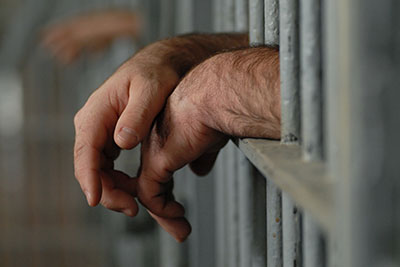Man Arrested in NV Pill Mill Raid Ordered to Remain Jailed
- Access to licensed treatment centers
- Information on treatment plans
- Financial assistance options

Richard “Richie” West II was recently arrested in the course of a federal investigation on prescription drug trafficking. A manager of a car dealership in Reno, he requested that the judge allow him to be placed on house arrest while awaiting trial. The judge denied the motion, according to the Reno Gazette-Journal, and ordered that he stay in Washoe County Jail.
The judge also ordered that West’s lawyer work with West’s doctor to create a medical plan that took into consideration the fact that he is viewed as a potential flight risk. Meanwhile, West will be moved to another location while awaiting trial for a 12-count indictment.
West’s arrest was a part of a federal investigation into a Nevada “pill mill,” by definition a clinic that illegally distributes prescription drugs with little to no medical inquiry or monitoring support. This type of organization played a large role in the painkiller abuse and overdose epidemic of the first decade of this century, and the FBI has worked hard to shut them down across the country. A continued focus on ensuring that all prescribing physicians are only prescribing these addictive medications to those with a legitimate medical need is key to ensuring that patients in pain are getting the treatment necessary to manage the problem while simultaneously protecting those same patients from addiction. In addition, this focus helps to ensure that the painkillers are not being used to maintain an ongoing addiction.
For many Americans, the struggle to strike a balance between pain management and nonaddictive use of painkillers is a daily battle. Is it a problem that you, or someone you love, are facing?
Physical Dependence vs. Full-blown Addiction
Almost everyone who takes a physically addictive medication will develop a physical dependence on the drug. The body develops a tolerance to the medication, requiring a steadily increasing dose in order to continue to experience the desired effects. Should the patient or prescribing physician determine that the medication is no longer needed, it is necessary to “taper off” the dose, slowly lowering it over time until the body is “weaned off” in order to minimize withdrawal symptoms as the body adjusts to being without the medication.
For medications that do not create a “high” in the user, this is a relatively simple process. Withdrawal symptoms (e.g., headaches, nausea, and other aches and pains that vary depending on the effect of the medication) will fade within a few days, and though uncomfortable, they are rarely life-threatening. Certainly, too, there are many people who can take prescription painkillers for the treatment of acute pain – even at high doses – and taper off when pain is no longer an issue without a problem.
However, for some people, regular use does more than trigger the development of tolerance and physical dependence; it triggers a psychological dependence as well. When this happens, addiction is the result.
Signs of Painkiller Addiction
Too often, the signs of painkiller abuse and addiction are mistaken for “normal” side effects of using these potent drugs. But there are a number of signs that use of the medication has turned into a substance use disorder and possibly an addiction that requires medical intervention. These include:
- Taking a higher dose than prescribed
- Taking more frequent doses than prescribed
- Crushing pills before ingesting them
- Ingesting pills in any way other than swallowing them whole
- Taking any prescription drugs without a personal prescription from a legitimate doctor
- Frequently complaining of “losing” pills and requiring an emergency script
- Attempting prescription fraud of any kind (e.g., altering a written prescription, filling a prescription at multiple pharmacies, acquiring multiple prescriptions for similar drugs from multiple doctors, etc.)
Though concerned friends and family members may not be privy to all of the above information, they may notice certain personality and behavioral changes that occur due to heavy drug use. If the prescription drugs are benzodiazepines (e.g., Xanax, Ativan) or painkillers (e.g., oxycodone, hydrocodone), then the person may:
- “Nod out” frequently
- Often complain of illness or being tired
- Withdraw from friends and family
- Lose interest in former hobbies and interests
- Fall behind at work or school
- Often be out of money or steal money
These signs can indicate a serious problem with painkillers and a high risk of overdose and/or accident under the influence. Immediate treatment that includes medical detox is recommended.
Does your insurance cover treatment for drug and/or alcohol abuse?
Check your insurance coverage or text us your questions to learn more about treatment by American Addiction Centers (AAC).
Alternative Pain Management
Once in treatment, if pain continues to be an issue, alternative pain management becomes a critical piece of recovery. Because addictive medications are clearly not an option if addiction is diagnosed, many will experiment with a number of different alternative pain management therapies in combination to hit upon the best choices for their personal needs. These can include:
- Physical therapy
- Acupuncture
- Bodywork and massage
- Nonaddictive painkillers
- Weight management
- Meditation
- Chiropractic care
- Supplements
- Wet/dry heat
Time and patience are necessary for these options to work, and medical supervision will help to ensure that patients are being monitored and have access to all the options that have a chance of being successful. Because pain is often a trigger for relapse, it is essential for people in recovery to identify pain management alternatives that allow them to be functional without the use of painkillers while they have ongoing supervision and therapeutic assistance during treatment.
What does your loved one need to recover from painkiller abuse and/or addiction? Is now the time to begin the process of transitioning to alternative pain management?